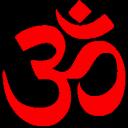Yahoo Answers is shutting down on May 4th, 2021 (Eastern Time) and beginning April 20th, 2021 (Eastern Time) the Yahoo Answers website will be in read-only mode. There will be no changes to other Yahoo properties or services, or your Yahoo account. You can find more information about the Yahoo Answers shutdown and how to download your data on this help page.
Trending News
13 Answers
- NaguruLv 76 years ago
Its origin is not known to me.
Quote:
Truth is most often used to mean being in accord with fact or reality, or fidelity to an original or to a standard or ideal.
The commonly understood opposite of truth is falsehood, which, correspondingly, can also take on a logical, factual, or ethical meaning. The concept of truth is discussed and debated in several contexts, including philosophy and religion. Many human activities depend upon the concept, where its nature as a concept is assumed rather than being a subject of discussion; these include most (but not all) of the sciences, law, and everyday life.
Unquote:
Source(s): compiled. - All hatLv 76 years ago
Belief is an ambiguous term - it can (and should, imo) mean that we are convinced that a thing is right. For rational people, that means facts, logic, reason, and replicability. But belief can also mean blind faith - which is irrational, and does not have a sound basis. So for the first definition, yes truths matter. They are essential. For the second, no.
- NathanCoppedgeLv 66 years ago
Although I agree somewhat with the hallucination thesis, there are other sources as well.
Many people gather their beliefs from the context of social norms, which some have called 'Mother Culture'. Although these beliefs may not be true, they are useful tools in the context of relating to other people who live in the same culture.
Other possibly meaningful sources of belief are actually creativity and mathematics. Creativity determines the available interpretations of mathematics, and mathematics very often seems like the 'most true thing' we can know with our minds (at least traditionally).
Unfortunately, many things that would ordinarily be considered 'true interpretations' tend to be relegated to the world of imagination. Thus, for example, the Romanticism movement virtually worshipped the imaginative ideal, but accepted that it was a fantasy. Many of these concepts are now relegated to psychological theories, although their actual meaning may be more broad. However, as soon as imaginative concepts are seen as relating to mathematics (in some cases), then it seems as if imagination is equally true.
Consider, for example, that certain forms of scientific imagination involve, well, imagination. Some forms of science, such as relativity and quantum mechanics may rely on the imagination of the scientist, not by determining its content, but instead, by determining its level of complexity.
And, still other theories may explode our concept of what it means to have true beliefs.
- Special EPhexLv 76 years ago
It doesn't come from anywhere. Truth is always all there is, expressed as Reality as it is, as that which is untrue and unreal never has any existence. Beliefs are not Truth itself, however beliefs "come" from Truth or the lack thereof, expressed as degrees of Truth or the absence of it, much like degrees of light and heat.
- How do you think about the answers? You can sign in to vote the answer.
- ?Lv 76 years ago
A lot of religious "truth" is hallucinations which people always seem to manifest. There's even a book called "Inside the Neolithic Mind" which speaks about this. There seem to be basic hallucinatory forms which are wired into the human brain. People seeing these hallucinations are often very convinced of their "truth".
Carl Jung wrote a lot about this as well. It's one of the bases of schizophrenia.
Anyway, overtime, people (who perhaps did not hallucinate these things themselves) refined these hallucinatory images and codified them into belief systems.
It's a terribly interesting field. That book is SO much fun.
- 6 years ago
The truth in your beliefs are what you stand behind. Are you being true to your word? How strong what you say to how you feel make up what and who you really are.
- JORGE NLv 76 years ago
Truths come from reality. If it is real it is true. If it is not real it is not true. From there we can believe as we want to. And in that it may take some moments to understand. It may take others longer. It is always best to follow those who understand reality much faster and better than to follow those who get it too late.
- LGLv 76 years ago
Truth is in data, what we see, hear, measure, observe. Beliefs are interpretations of that data. And whenever we interpret(i.e. simplify) we lose a bit of the truth contained in the original data. We must simplify, as our human brains cannot possibly process all the information coming to us in a raw form. But we must be aware of what happens in the interpretation/simplification process.
- JorgeLv 66 years ago
Spiritual truths are not beliefs. They comes from authorized great personalities who are self realized souls. Ultimatly, the truth is God, He is the Absolute Truth where all relaive truths come from.
- 6 years ago
Truths in this context is religous bigotry and lies conjured up by those who crave and want to mantain their own power and wealth at whatever cost
And yes it certainly does matter, why? because of the millions of lives lost by war and murder for the sake of the famous truth.






